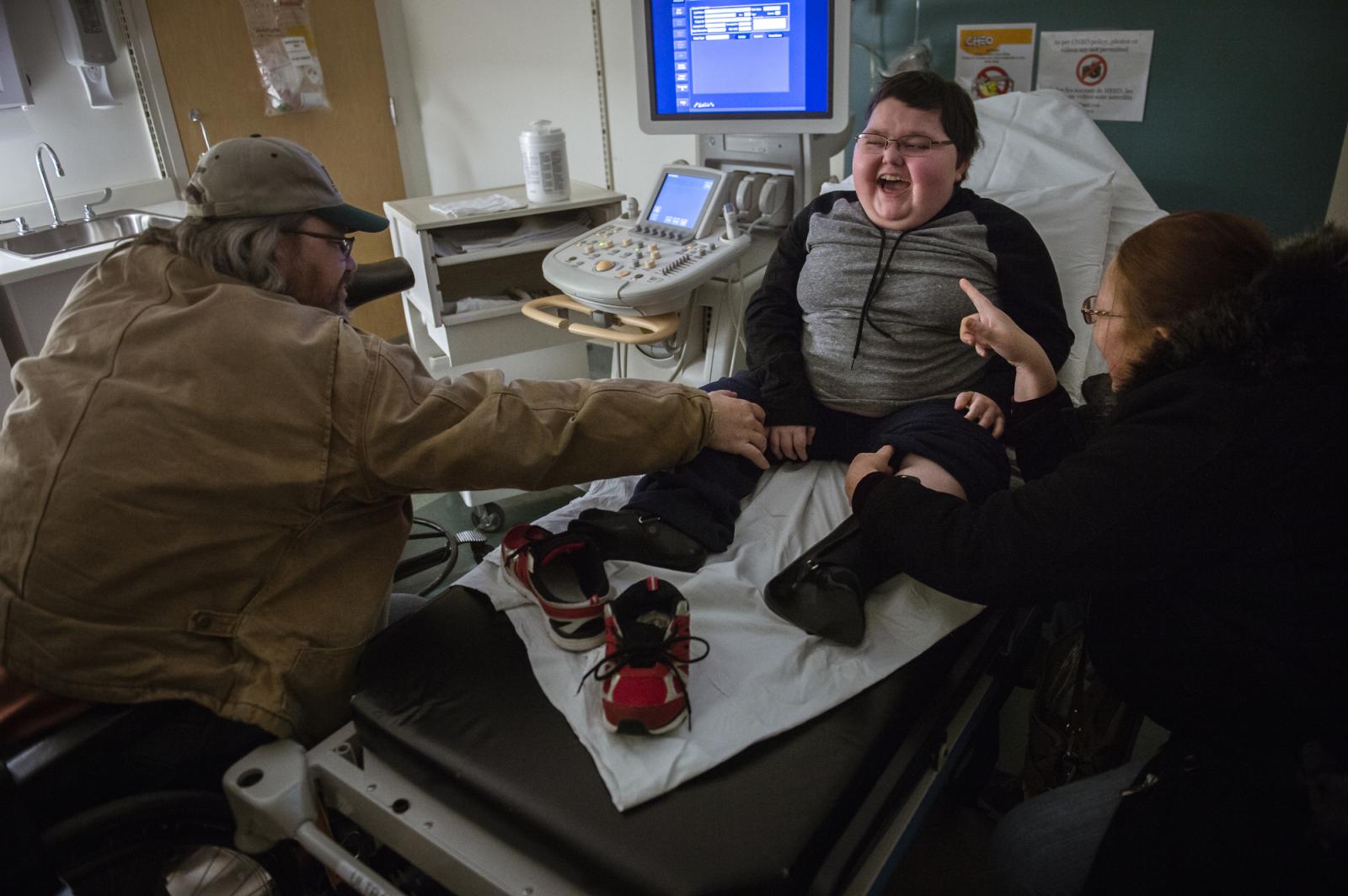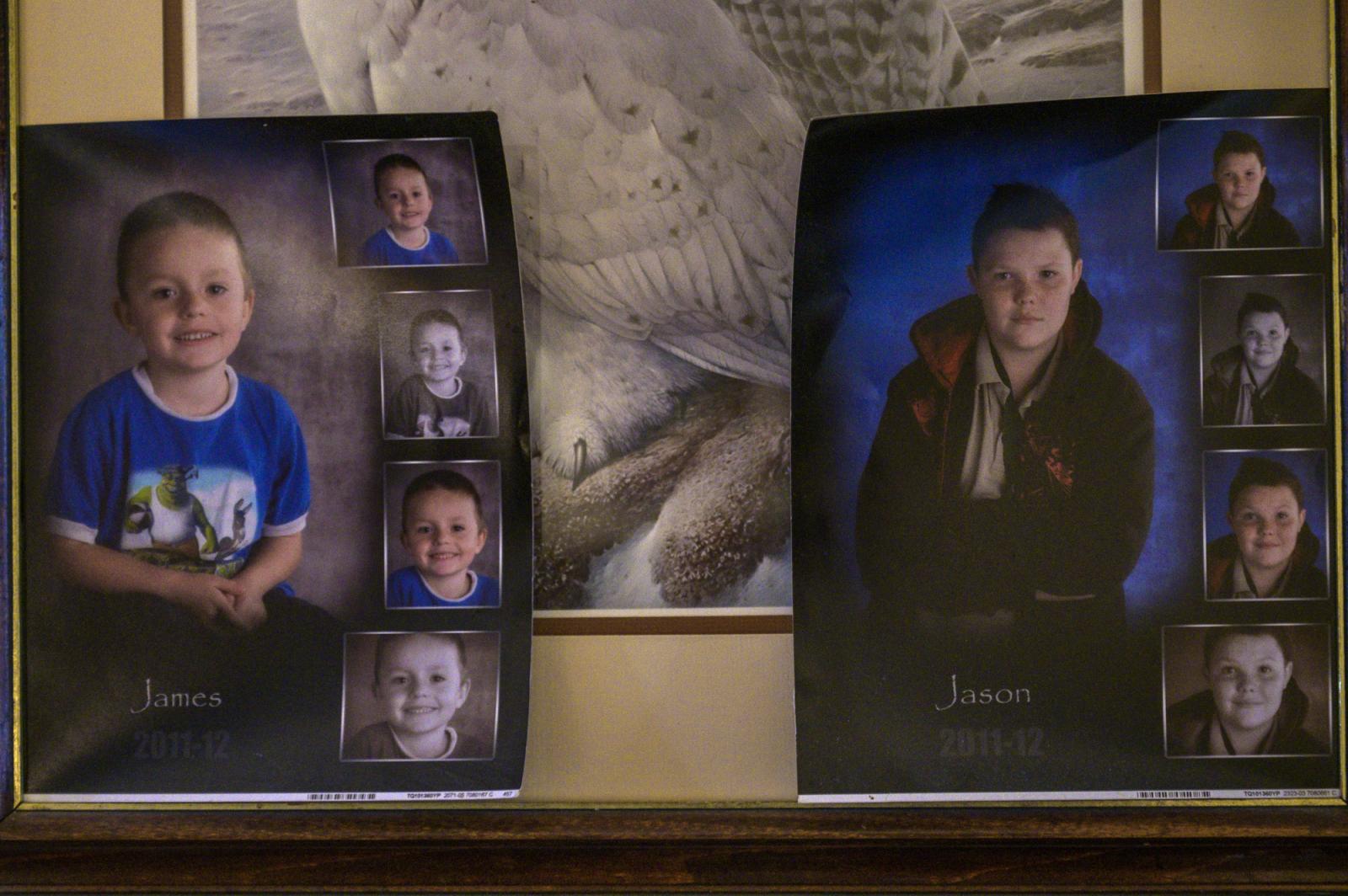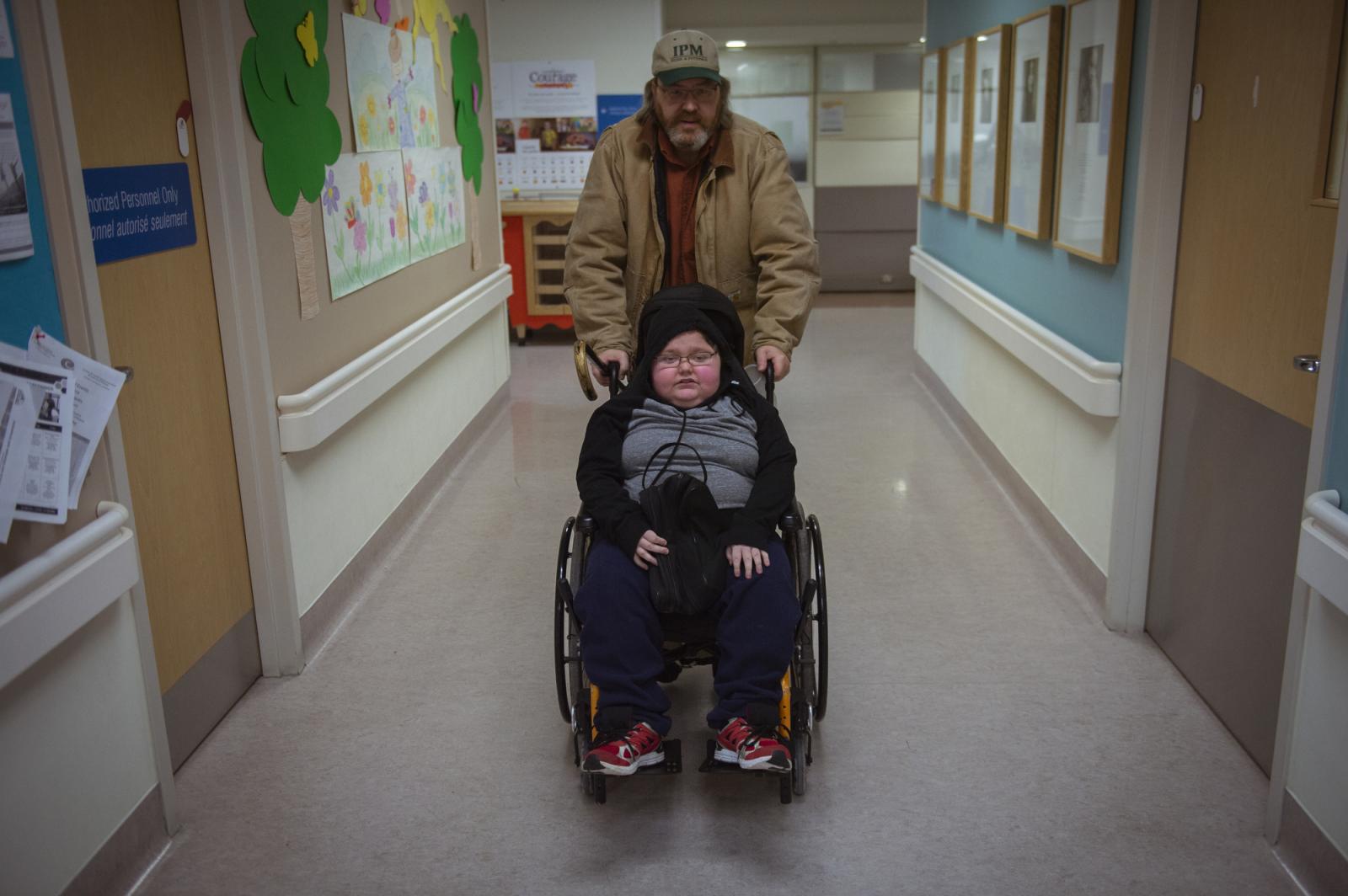At the end of a long day at the Children’s Hospital of Eastern Ontario in Ottawa, the Barber family sits in a dimly lit exam room. As cartoons play on a television in the background, J.J., a 13-year-old boy with Duchenne muscular dystrophy and autism, sits on an examination table while his father, James, sits in his son’s wheelchair and his mother, Lisa, sits in a chair. It’s one of the first moments of respite the family has had after a long day. They’ve been going nonstop since 8 in the morning.
Once all the tests have been finished for the day, the Barbers sit in tired silence. J.J. parrots the TV show, and Lisa reaches over to touch her son’s foot. She slowly lifts up the leg of J.J.’s sweatpants and pretends to bite his calf. She then gently tickles him.
“He’s pretending to resist me. I know he can’t resist my tickles,” Lisa says.
James reaches over and begins to tickle J.J.'s other calf, prompting the boy to explode into uncontrollable laughter.
After a painful ultrasound and a failed attempt to inject J.J. with an osteoporosis medication, the laughter is a welcome relief.
The condition J.J. has, Duchenne muscular dystrophy, is a rare genetic disorder that, beginning in early childhood, causes progressive atrophy and weakening of muscles, making it difficult for those affected to run, walk, sit and, eventually, breathe, leading to an early death. According to the National Institute of Neurological Disorders and Stroke, the condition primarily affects boys and its symptoms tend to show up between the ages of 2 and 5. There is no cure for Duchenne right now; people with the condition often die in their teen years and rarely live beyond early adulthood. Although Duchenne is the most common form of muscular dystrophy, there are others that tend to show later in life — some not until middle age — and also tend to have a less severe impact.
J.J. had been part of a clinical trial for an experimental drug to improve calcium binding in osteoporosis. However, he was put in the control group, meaning he would have to endure the industry standard, an hour-and-a-half-long injection of Zometta, a calcium-binding enhancer.
As the day came to a close, the Barbers waited for the final results of the ultrasounds before going to get McDonald’s — J.J.’s reward for braving the day.
The three of them had driven in the night before from their home in Trenton, Ontario, three hours away, and stayed at the Ronald McDonald House, helping them to save money.
Between rent, medications, specialized treatments for J.J. and, most recently, a newly purchased wheelchair-accessible van, the Barbers have spent nearly $70,000, half of which they had solicited as donations.
But that’s not all they have to deal with. The entire family is on the autism spectrum. James, the father, has a form of Asperger’s; J.J.’s older adopted brother, Jason Miller (who goes by Miller), and another older brother, Jason Barber, have autism and so does their mother, Lisa. Living in a household where all five members are on disability presents a lot of challenges. Even more now that J.J. is wheelchair-bound.
Despite all the challenges, the family works together to support J.J. Lisa wakes up at 5:30 every morning to help him dress, make sure he eats and get him ready to board the school bus at 7:40.
James helps out in the evenings. Three to four times a week, he carries J.J. upstairs from the living room to give his son a bath. With a bad back and his 60s just around the corner, James is unsure how much longer he will be able to manage the stairs. Luckily, Habitat for Humanity has stepped in and will be helping them build a new home.
The Barbers also recently received more good news. Their doctor let them know that he was able to secure J.J.'s Zometta treatment for as long as he needs it — free of charge.
Despite the challenges he faces, J.J. is, in many ways, a typical teenager. He loves Disney movies, video games and solving puzzles. He also has a loving family to help him through each day.
His mom, Lisa, said: “Every day we have with him is truly a blessing. We try and enjoy every one.”

















